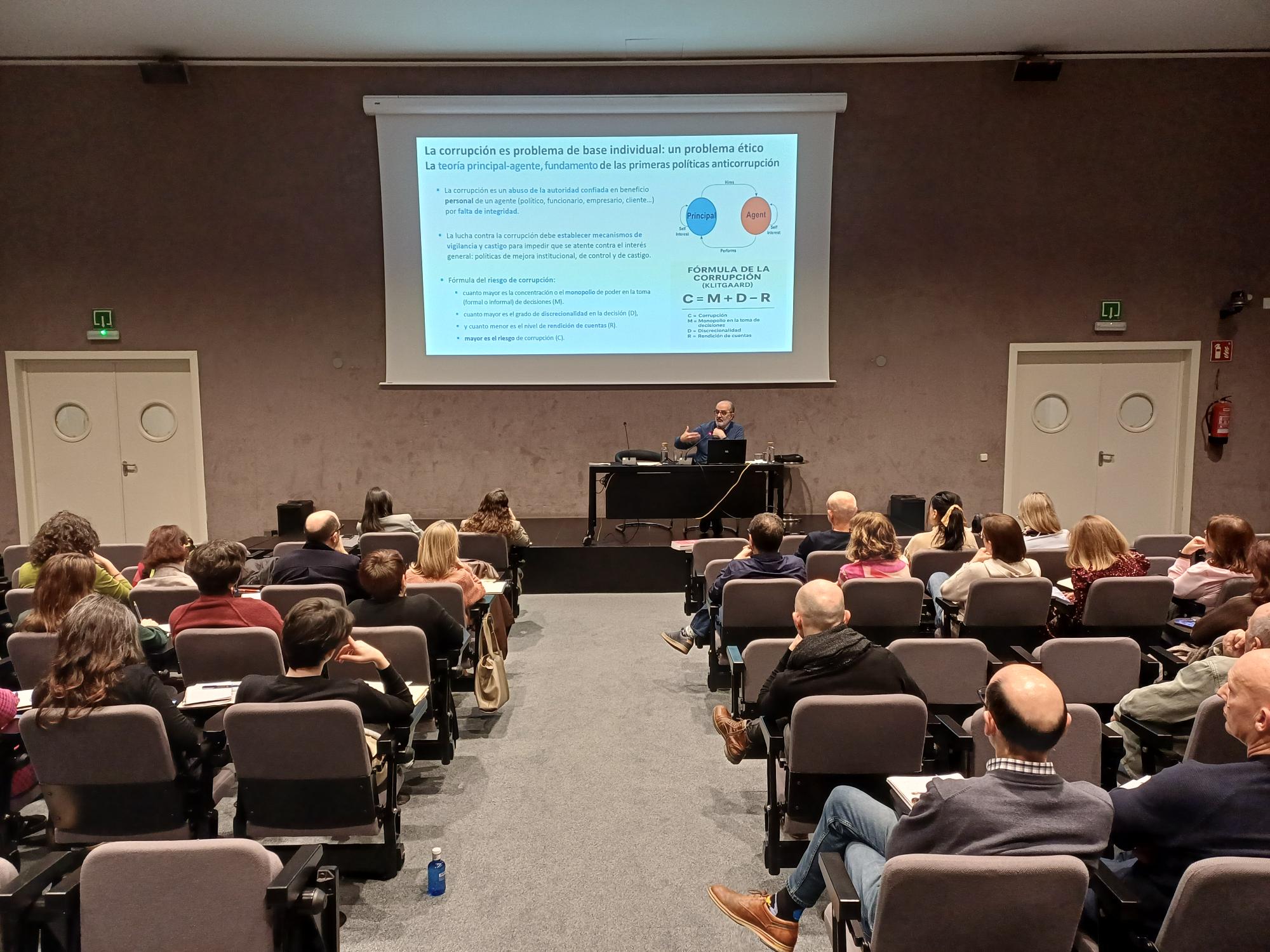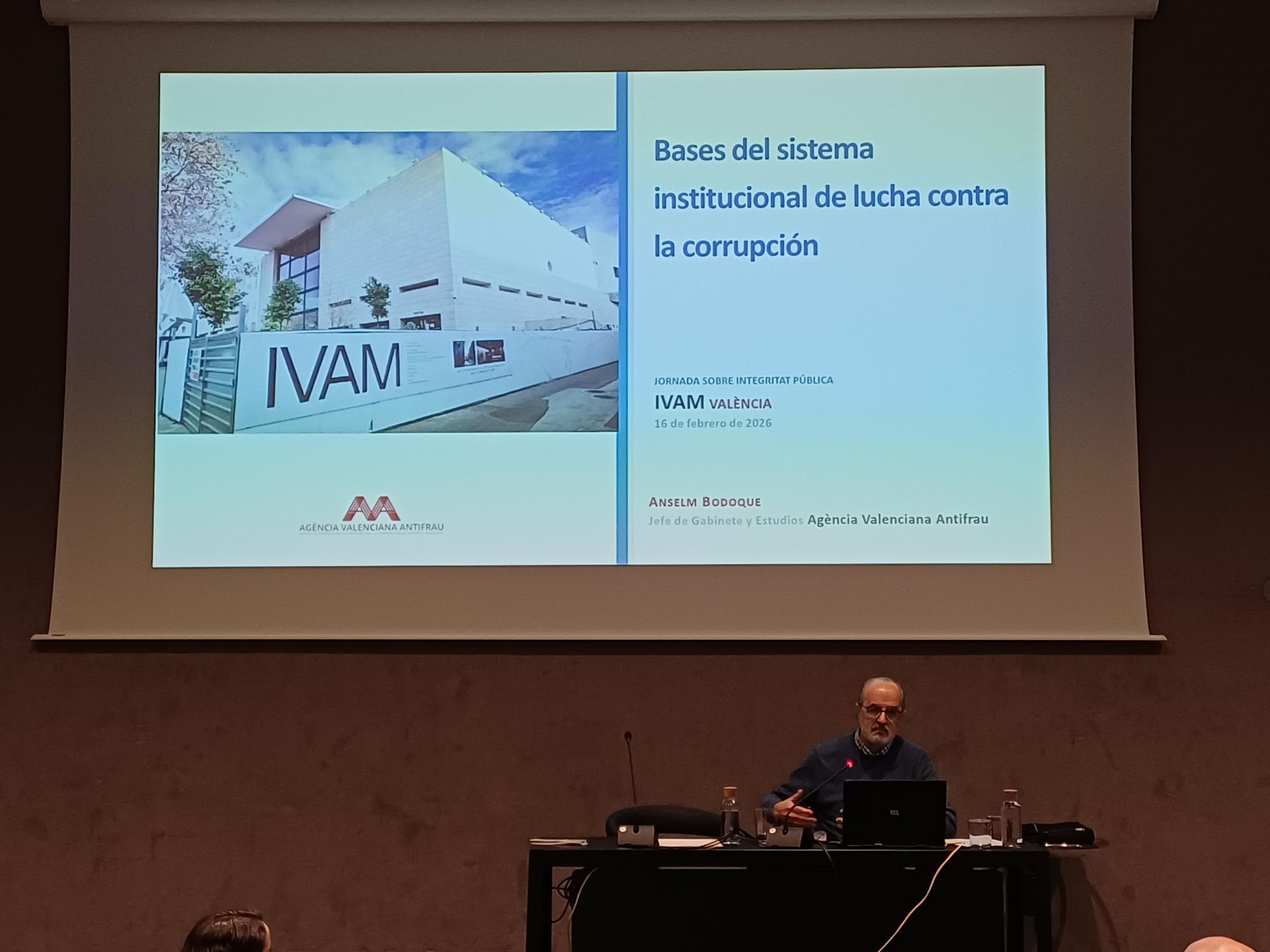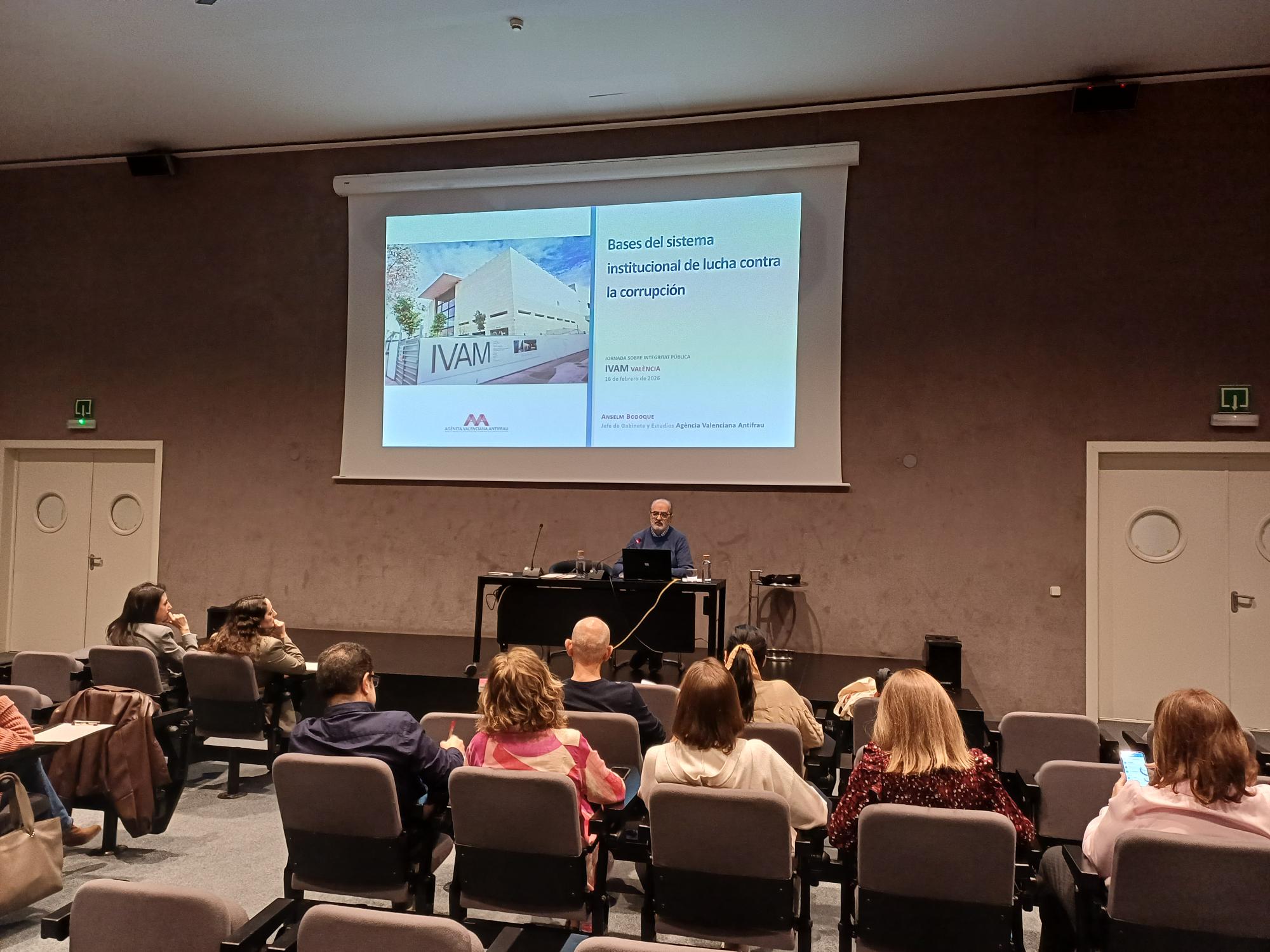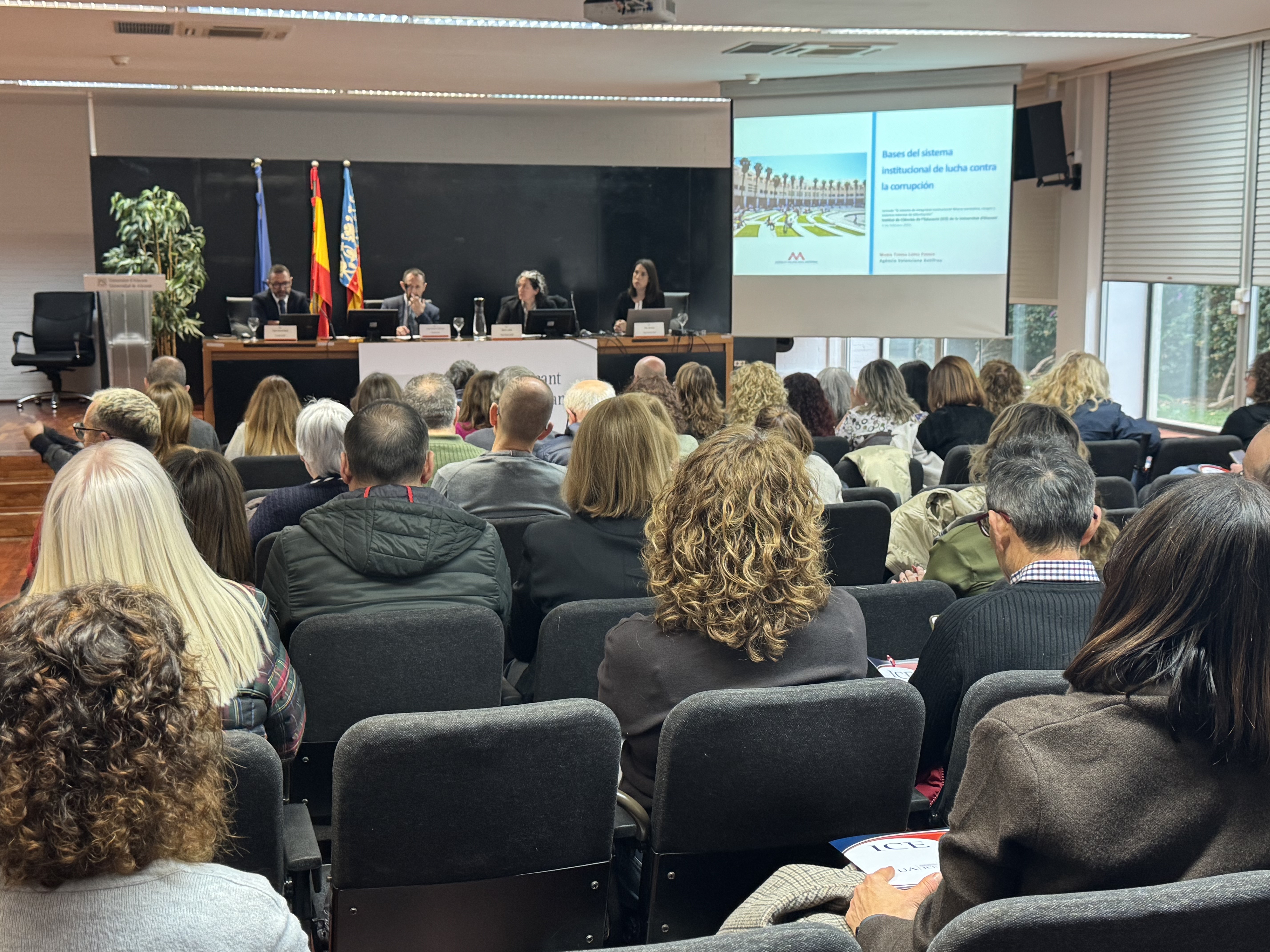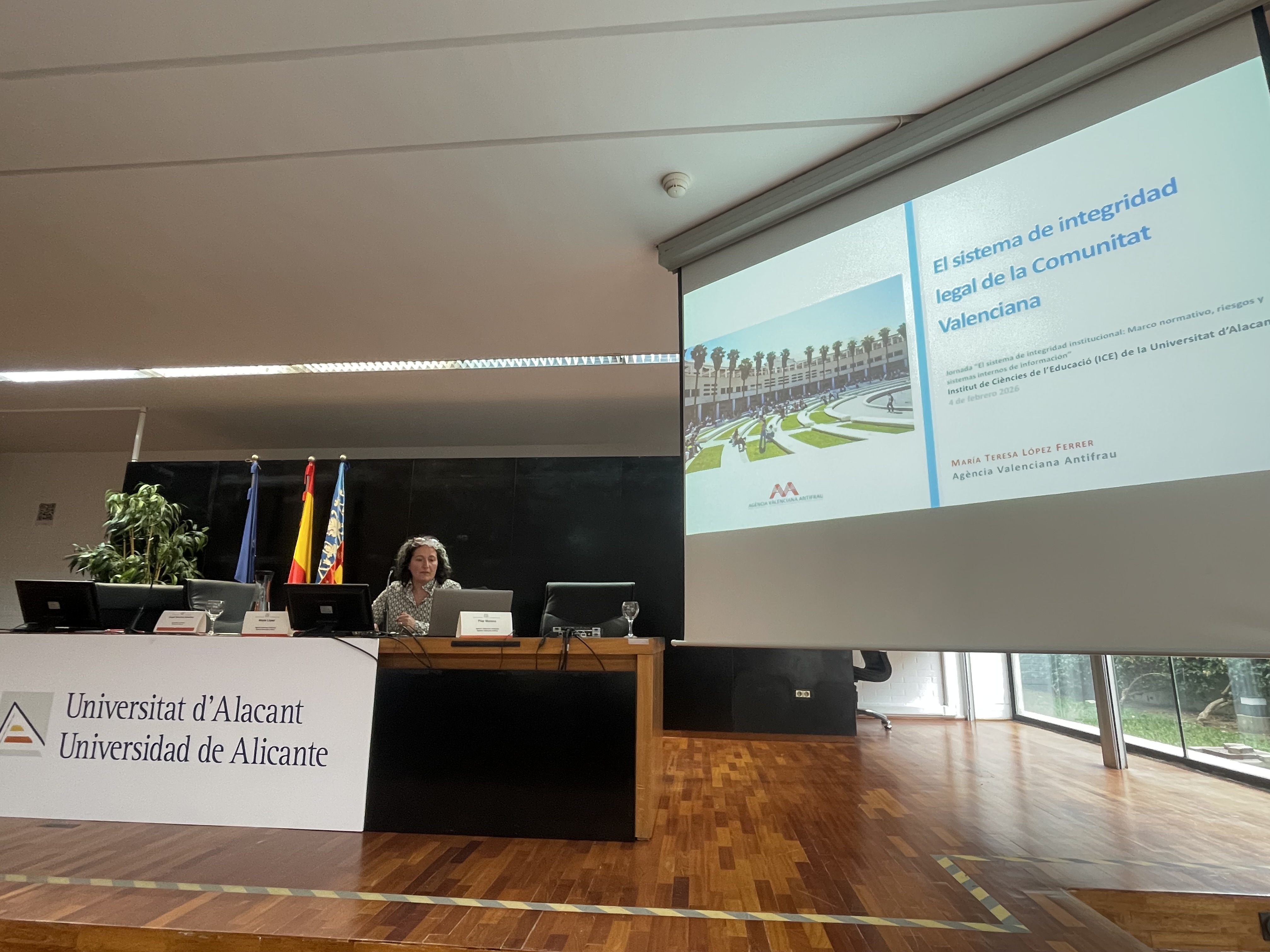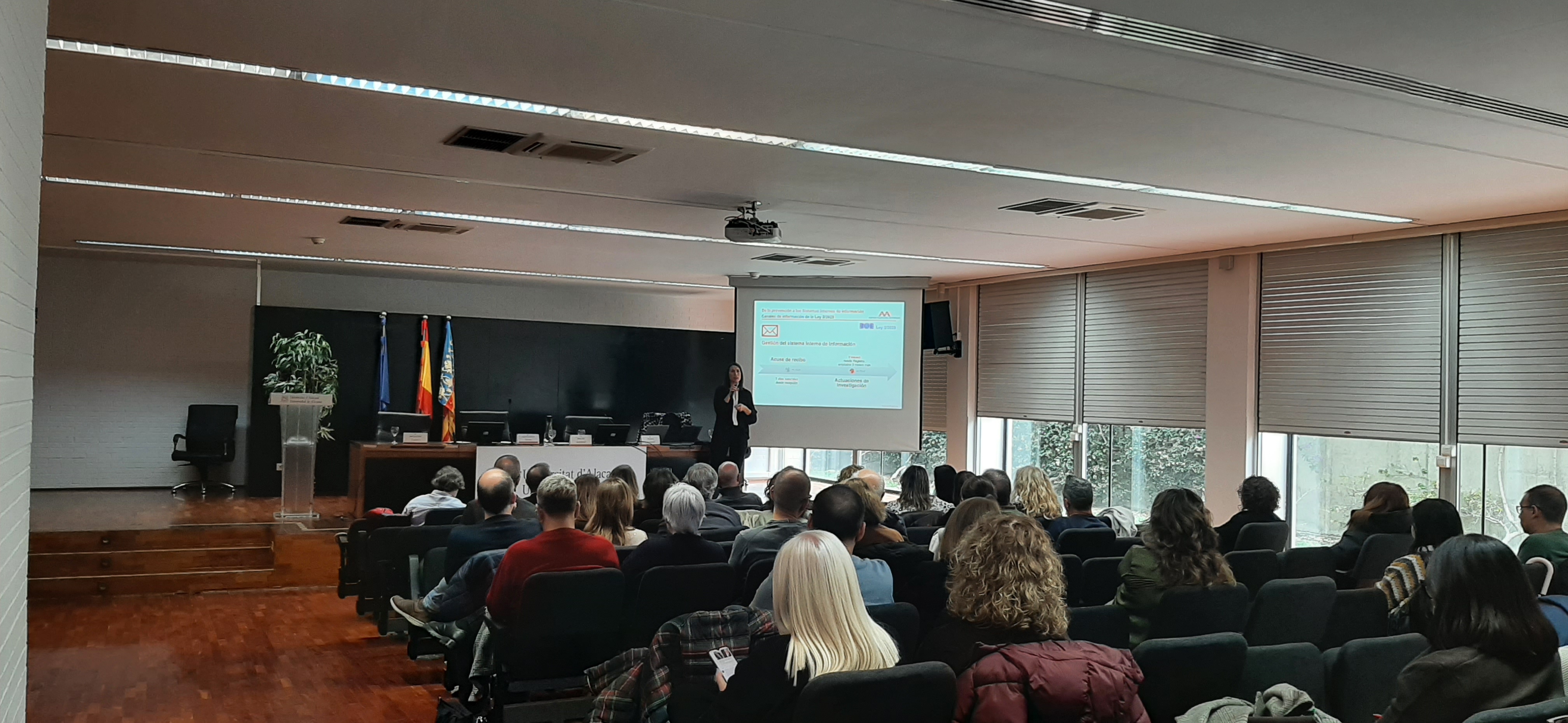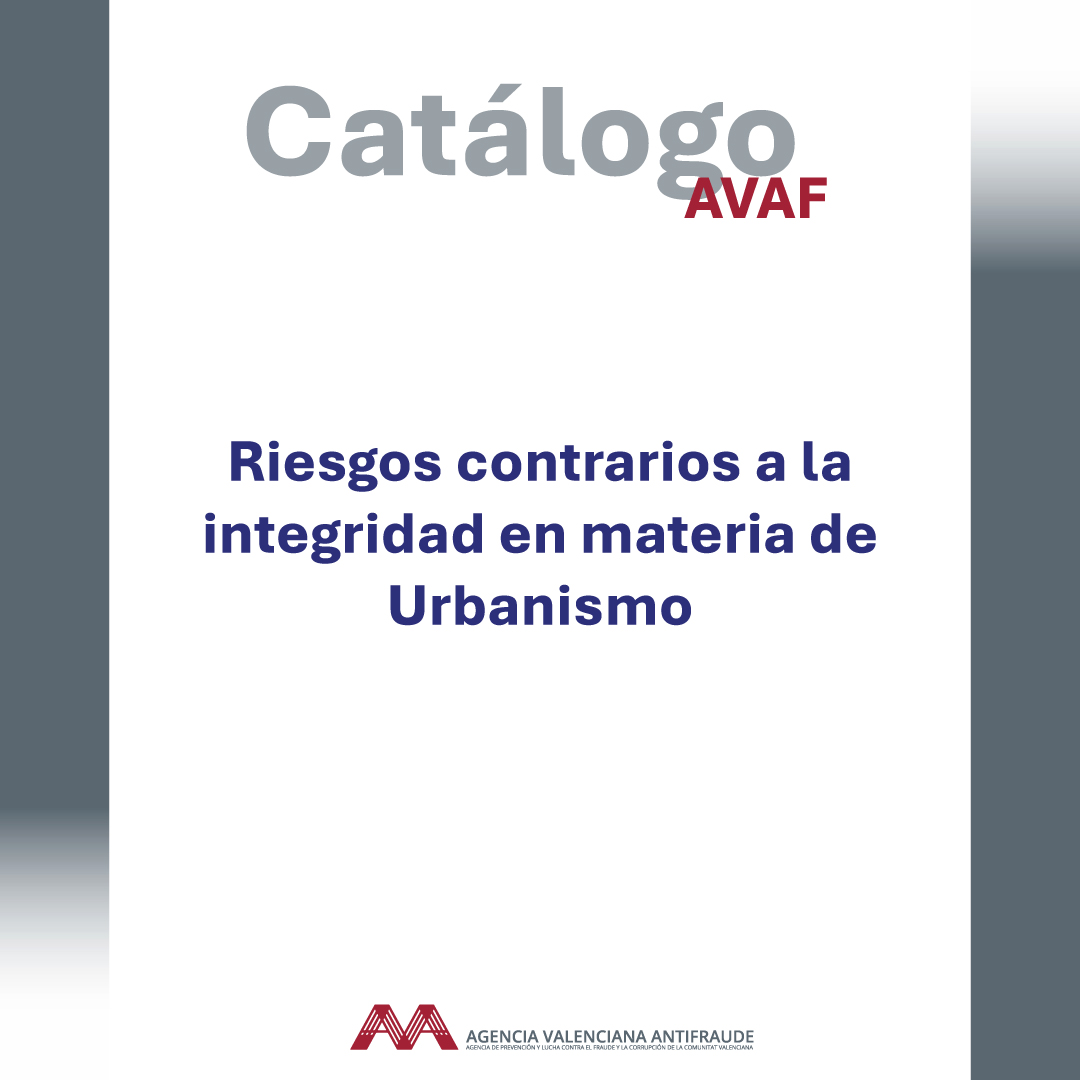The AVAF participates in the IVAM Training Plan with a conference on public integrity and prevention
Valencia, February 16, 2026.- The Institut Valencià d’Art Modern (IVAM) has had the collaboration of the Valencian Anti-Fraud Agency (AVAF) in its Training Plan. The conference “The public integrity system: from the regulatory framework to practical management”, given by the AVAF at the Museum’s facilities aimed at all IVAM staff.
The IVAM was born in 1986 with the approval of its law of creation as a public law entity by the Valencian Parliament. Its objective is the development of the cultural policy of the Generalitat Valenciana with regard to the knowledge, protection, promotion and dissemination of modern and contemporary art due to its international and avant-garde character.
Throughout the day, the attendees were able to learn about the institutional framework of state integrity, as well as the institutional system for the fight against corruption from the perspective of the Valencian Community, from the national and international context. A part of the Conference was also dedicated to reflecting on the culture of integrity from the cultural field, taking as a reference the ICOM code of ethics, as well as the IVAM’s own code of ethics.
The training continued with the main novelties and obligations of Law 2/2023 in terms of internal information systems and external reporting channels. The day concluded with a workshop on conflict of interest.
The conference, in which 38 people participated, was given by Anselm Bodoque, head of cabinet and studies; and by Marita Oliver, training technician of the AVAF.
The Agency thanks the IVAM for its interest in promoting the prevention of fraud in public management through the Training Area.
Those public administrations interested in promoting specialized training in integrity, fraud prevention and public ethics can contact the Training Area through the email: formacion@antifraucv.es


